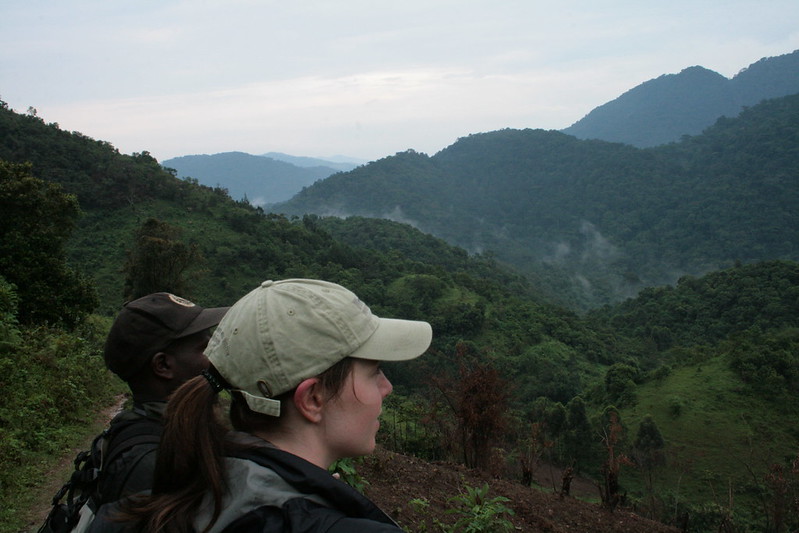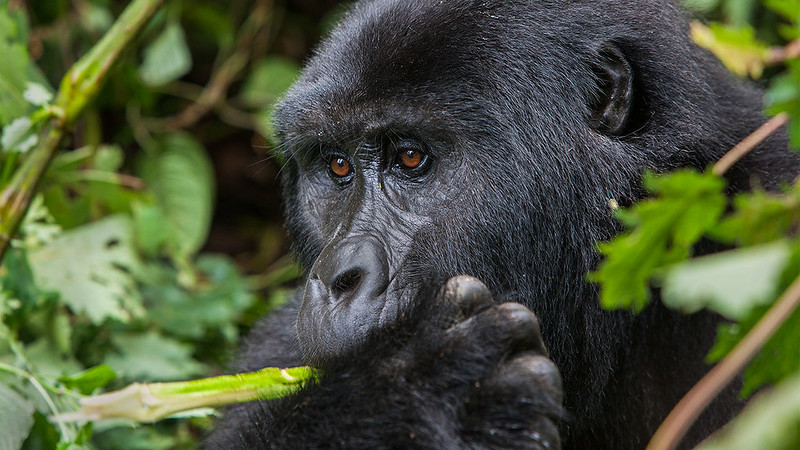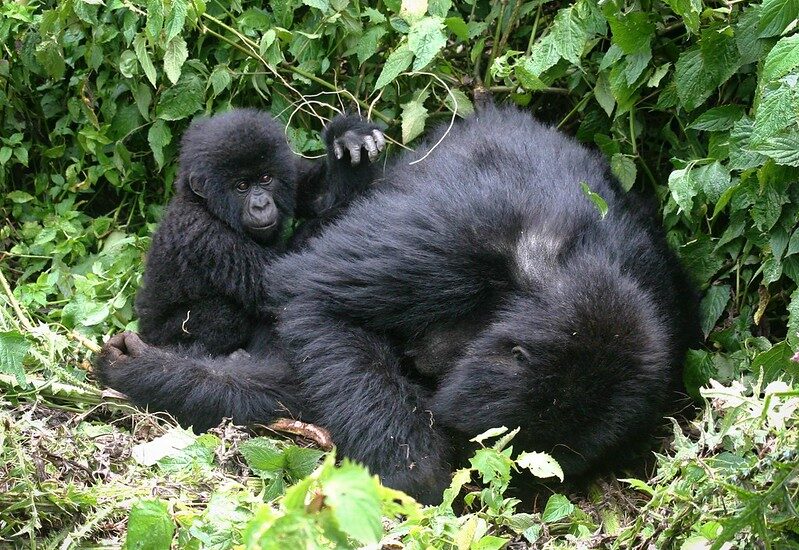Gorilla tracking permits for Nkuringo sector – Bwindi impenetrable National Park. You are currently sleeping…
Gorilla Trekking Fitness
Fitness for Gorilla Trek
Physical fitness is one factor that assures successful Gorilla Trekking Safaris in Uganda, Rwanda & Congo. How physically fit one should/can be to be able to spot/trek mountain gorillas is one of the regularly asked questions about Gorilla Trekking. While booking for Gorilla trips, probable trekkers are instructed to certify physical fitness before to the actual gorilla trekking period. Physical fitness is emphasized to avoid test/trials that occur along with long hiking hours and in places of high altitudes. Travelers who are not fit physically are therefore certain of smooth gorilla hiking trips without tests since being fit is one of the main factor for every positive gorilla tour. These endangered species (Mountain gorillas) reside in places of higher altitudes, which take trekkers a lot of time to trek before seeing the mountain gorillas. During the pre-trekking sessions, trekkers are retold to unveil their physical fitness to fellow trekkers so that they can be given gorilla families appropriate for them.
How are mountain gorillas allocated?
During the pre-trekking sessions, trekkers are put together in groups of eight each assigned to a new gorilla group for 1 hr. The distribution of gorilla families relies on various factors among which the trekker’s physical fitness. Some gorilla families reside in elevated altitudinal places while others in areas of subdued altitude. So trekkers who are less physically fit, the aged and weak are given assigned gorilla families living in areas of subdued altitude while the physically fit are allocated hard to trek gorillas. The trekking duration usually depends where a gorilla family is and how speedy of movements. These confirm trekkers that one’s physical fitness cannot stop him/her from trekking/spotting mountain gorillas.
Which exercises should I do to be physically fit?
Trekkers intending to trek mountain gorillas are instructed to do enough exercises to certify physical fitness when the Gorilla trekking period comes. And things they are instructed to get involved in are hiking, walking, going to the gym and stretching, etc. These prepare you well for gorilla trekking.
What to eat during the Gorilla Trekking?
Having had an early heavy breakfast before your Gorilla trekking activity, the Hotel will equip you with packed lunch, normally light snacks and these should be enough for your tour up to the National Park.
What if I fail to reach where gorillas are?
In case you fail to make it to where the mountain gorillas are, you are provided with the sedan chair. Here a trekker is carried by four porters into the forest with the help of other trekkers in the group but the trekker carried pays extra cost to take care of the porters who carried him/her to and from the forest. These chairs (Sedan) are mainly used for those disabled and the aged who cannot hike for long period of time especially in the slippery muddy trails (wet season).
Mountain gorilla destinations
It’s very important to know about gorilla places and what makes them vary before settling for any gorilla tour. Mountain gorillas only reside in two regions, Bwindi Impenetrable forest national park, Virunga massive shared by Volcanoes national park Rwanda, Mgahinga gorilla national park Uganda and Virunga national park in DR Congo. Each region has its unique structures and deciding which place is best to spot gorillas is therefore a choice of the trekker/tourist. Bwindi forest in Southwestern Uganda havens the highest number of gorillas with 17 gorilla families habituated for trekking.
Trekkers/Tourists are advised to carry enough drinking water and energy giving snacks to keep them strong during hiking, must carry fundamentals on a gorilla tour like hiking boots to simplify your movements in the slippery muddy trails, rain jackets for the uncertain forest weather, hand gloves to avoid being hurt by thorny bushes, sun glasses and a hat for protection from direct sun.


